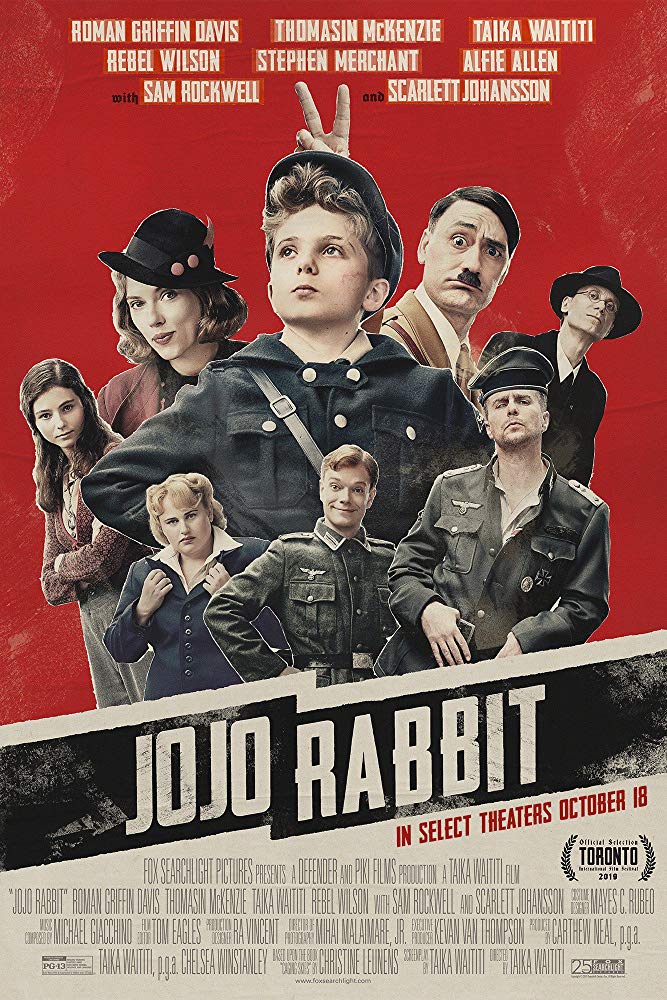By: Ryan Farrell, Staff Writer
Taika Waititi’s controversial satire is finally showing in the Portland area. This colorfully dark comedy shows the true nature of blind nationalism, specifically when it supports a fascist regime.
The film is predictable at times and isn’t always historically accurate. However, its anti-hate message transcends the time period. Both Watiti’s direction and screen presence proves that he is a man of many talents.
Jojo Rabbit is a loose adaptation of the novel Caging Skies by Christine Leunens. The plot is set in Nazi Germany during the heat of World War II. Ten-year-old Jojo Betzler, played by Roman Griffin Davis, is overflowing with German nationalism. His greatest dream is to enlist in Hitler’s youth militia. He is so infatuated in the war that his imaginary mentor takes the form of Adolf Hitler.
After an accident prevents Jojo from continuing his training, his mother Rosie takes him back to their home in Germany. Jojo’s world is turned upside down yet again when he discovers a jewish girl named Elsa hiding within a false wall in his home. Cursed with this knowledge, Jojo then makes himself solely responsible for her safety. As Jojo observes the progression of the war, he slowly realizes the true nature of the Nazi Party.
One of the highlights of Jojo Rabbit is Taika Waititi’s portrayal of Adolf Hitler. Waititi plays this character in exaggerated tones. Since he’s a figment of Jojo’s imagination, Waititi is often able to transcend reality.
While the Fuhrer’s guidance can be gentle, he can lose his temper quickly. This film easily could have spammed the character for the sake of dark comedy, but his appearances are used sparingly to keep the focus on Jojo’s story. Nonetheless, this performance is certainly a highlight of the film.
Despite Jojo Rabbit’s dark nature, its scenes are colorful, extravagant and joyous. The cinematic style is reminiscent of a Wes Anderson film. Even the murkiest of colors seem to pop. This works to juxtapose the dark horror of World War II while also making it visually unique, separating it from other films that take place in that era.
In addition, Davis plays an excellent war-time fanboy. His role presents the opportunity to express fascism from a unique perspective. His perceptions of reality are directly influenced by his nationalism and the Nazi Party.
For example, when Jojo finds Elsa in the wall, it is shot and edited as if it were a scene in a horror film. The tone changes, Jojo backs away as Elsa slowly crawls out from behind the wall. This shift is used to illustrate the ridiculousness of Jojo’s prejudice.
A particularly unique aspect of this film is that it is able to be incredibly comedic while also having emotionally impactful moments. The context of the war adds a serious weight to the film’s beats.
With warfare and destruction approaching Germany, the seriousness of the situation is emphasized by the use of silence. Although the tones in the later half are dark, the film successfully promotes the abolition of prejudice and war.
Jojo Rabbit is now showing in theaters.

